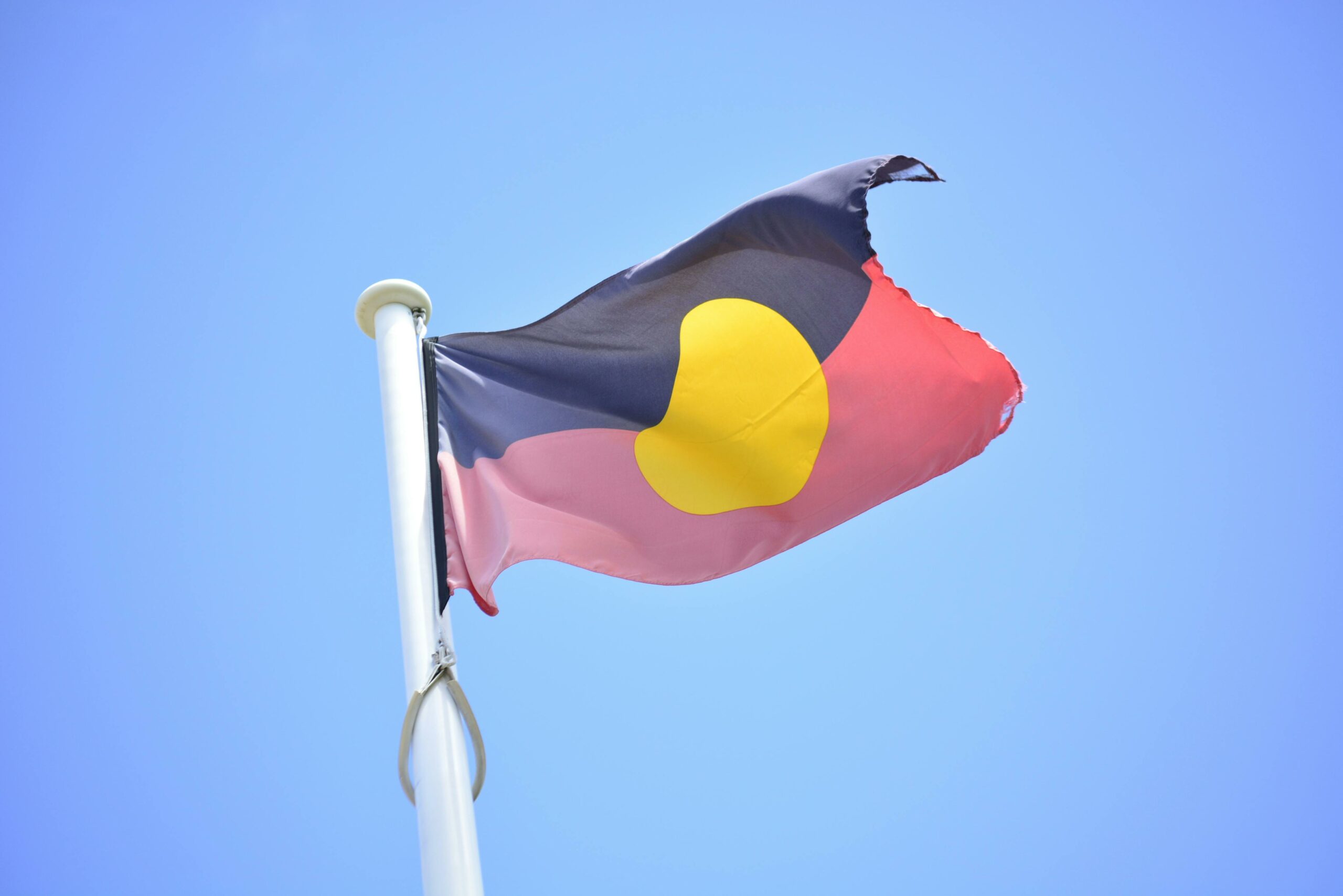NAIDOC Week Is Coming: Why Cultural Competency Matters in Community Service
As NAIDOC Week approaches, Australia pauses to reflect, respect, and celebrate the rich history, culture, and achievements of Aboriginal and Torres Strait Islander peoples. While this annual celebration is a significant cultural event in its own right, it also serves as a powerful reminder of the importance of cultural competency, particularly in sectors that involve direct engagement with diverse communities, such as community services.
Community service professionals play a vital role in supporting individuals from diverse backgrounds. To do this effectively, they must possess more than just technical knowledge and compassion—they must also be culturally competent. Understanding and appreciating Indigenous perspectives is not only respectful but essential for delivering equitable, inclusive, and meaningful services.
In this blog, we’ll explore the meaning and significance of NAIDOC Week, delve into the concept of cultural competency, and explain why it is a cornerstone of effective practice in the community services sector.
What Is NAIDOC Week?
NAIDOC (National Aboriginal and Torres Strait Islanders Day Observance Committee) Week is a nationwide celebration held annually in July. The week is dedicated to recognising the history, culture, and achievements of Aboriginal and Torres Strait Islander peoples. It is celebrated not only in Indigenous communities but also by Australians from all backgrounds.
Key Elements of NAIDOC Week Include:
- Community events such as art exhibitions, cultural festivals, and storytelling sessions.
- School and workplace celebrations focused on Indigenous themes.
- Recognition of outstanding Indigenous leaders through NAIDOC Awards.
- Themed discussions foster a deeper understanding of the current issues affecting First Nations people.
Each year, NAIDOC Week features a different theme. In 2025, the theme is “Keep the Fire Burning! Blak, Loud and Proud”, celebrating the enduring strength and vibrancy of Indigenous voices and cultures across the country.
What Is Cultural Competency?
Cultural competency refers to the ability of individuals and organisations to effectively understand, communicate with, and interact with people from diverse cultural backgrounds. It involves:
- Awareness of one’s cultural worldview.
- Attitude towards cultural differences.
- Knowledge of different cultural practices and worldviews.
- Cross-cultural communication skills.
In the community services context, cultural competency ensures that workers provide respectful, responsive, and effective services to people of all backgrounds—especially those from marginalised or historically disadvantaged groups, such as Aboriginal and Torres Strait Islander communities.
Why Cultural Competency Matters in Community Services
1. Building Trust and Rapport
First Nations peoples may carry generational trauma due to colonisation, the Stolen Generations, and systemic discrimination. For many, interactions with government agencies and community organisations are met with caution or mistrust. Culturally competent workers can break down these barriers by:
- Showing respect for cultural protocols and traditions.
- Listening actively and without judgment.
- Valuing Indigenous perspectives.
Impact: Establishing trust leads to more honest communication, better needs assessment, and a greater likelihood of long-term support engagement.
2. Delivering Person-Centred Care
Community services are most effective when tailored to the specific needs, values, and preferences of individuals. Cultural identity plays a significant role in shaping a person’s experiences and expectations.
A culturally competent worker:
- Understands kinship systems and community structures.
- Recognises the spiritual and cultural dimensions of wellbeing.
- Avoids making assumptions based on stereotypes.
Impact: Services become more relevant and empowering, contributing to stronger outcomes and self-determination for Indigenous clients.
3. Addressing Systemic Inequities
First Nations Australians continue to face health, education, employment, and justice disparities. These are not just the results of individual disadvantage—they are outcomes of systemic inequities rooted in colonisation and racism.
Cultural competency helps community workers:
- Understand the social determinants of Indigenous disadvantage.
- Advocate for fair policies and practices.
- Recognise and challenge institutional racism.
Impact: Workers become agents of change, promoting equity not just at an individual level but also within broader systems.
4. Supporting Reconciliation
Cultural competency aligns with the principles of Reconciliation Australia, which calls for truth-telling, healing, and justice. It goes beyond tolerance to embrace respect, understanding, and active partnership with First Nations peoples.
Through culturally informed practice, community service workers can:
- Participate in truth-telling processes.
- Support Indigenous-led initiatives.
- Encourage non-Indigenous Australians to reflect on their role in reconciliation.
Impact: Culturally competent workers contribute to healing and nation-building through respectful and inclusive service delivery.
5. Enhancing Professional Practice and Ethics
The Australian Community Workers Association (ACWA) and other professional bodies highlight cultural competence as a core ethical responsibility. It is not an optional extra—it is essential to meeting the professional standards of the sector.
Key principles include:
- Respect for diversity.
- Commitment to social justice.
- Ethical engagement with vulnerable populations.
Impact: Cultural competency enhances the credibility and effectiveness of community service workers, aligning them with best practices and professional integrity.
Becoming culturally competent is a continuous journey of learning, unlearning, and growing—both professionally and personally. It’s not just about acquiring knowledge; it’s about transforming your mindset, behaviours, and organisational practices to foster genuine respect and understanding of cultural diversity, particularly with Aboriginal and Torres Strait Islander peoples.
Here’s how individuals and organisations in community services can take meaningful steps toward developing cultural competency:
1. Participate in Cultural Awareness Training
What It Involves:
- Actively enrolling in structured workshops or sessions that Indigenous educators or organisations facilitate.
- Learning about Australia’s true historical narrative, including the impact of colonisation, dispossession, the Stolen Generations, and the ongoing struggles for justice.
- Gaining familiarity with cultural protocols, such as Welcome to Country and Acknowledgment of Country, as well as understanding traditional kinship systems, language diversity, and spiritual beliefs.
Why It Matters:
Formal training helps community workers gain a respectful foundation of knowledge, while also challenging misconceptions or stereotypes. When guided by First Nations voices, these trainings offer authentic insights that inform more empathetic and culturally appropriate service delivery.
2. Listen to First Nations Voices
What It Involves:
- Following Indigenous authors, artists, journalists, and community leaders through books, podcasts, news outlets, and social media platforms.
- Attending NAIDOC Week events, film screenings, community festivals, or local cultural exhibitions.
- Actively seeking out opportunities for First Nations individuals to lead conversations—whether in team meetings, community consultations, or service design.
Why It Matters:
Listening is one of the most respectful and powerful actions you can take. Centering Indigenous voices ensures that community services are not speaking on behalf of, but working in partnership with First Nations peoples. It’s about hearing lived experiences directly and learning from them.
3. Reflect on Personal Biases
What It Involves:
- Acknowledging that unconscious biases and privilege exist in everyone, shaped by personal upbringing, media narratives, and societal structures.
- Taking time to self-reflect on personal beliefs, language, and behaviours that may unintentionally marginalize or offend others.
- Welcoming open, honest discussions about race, identity, and inclusion with colleagues, supervisors, and community members.
- Engaging in decolonisation of your mindset—questioning assumptions rooted in Western frameworks and recognising Indigenous knowledge systems as equally valid.
Why It Matters:
Self-awareness is the cornerstone of cultural competency. When workers confront their own biases, they become better equipped to interact without judgment and create safe, inclusive spaces for all clients. This internal work is essential to ensuring respectful service delivery.
4. Build Community Relationships
What It Involves:
- Proactively collaborating with Aboriginal community-controlled organisations and leaders.
- Inviting elders and respected cultural custodians to guide or co-facilitate program design and decision-making processes.
- Engaging in long-term partnerships instead of transactional, one-off engagements.
- Practising co-design principles—ensuring services are developed with, not for, Indigenous communities.
Why It Matters:
Relationships built on trust, mutual respect, and shared ownership lead to services that are more relevant, culturally safe, and sustainable. Community engagement is not just about outreach—it’s about relationship stewardship and recognising Indigenous communities as equal partners in service provision.
5. Advocate and Educate
What It Involves:
- Promoting inclusive workplace policies that value cultural safety, diversity, and anti-discrimination.
- Sharing educational resources, such as Reconciliation Action Plans (RAPs), documentaries, or articles with your team and client base.
- Using your voice and professional platform to advocate for systemic change—supporting Indigenous rights, land justice, treaty processes, or language revival initiatives.
Why It Matters:
True cultural competency extends beyond one-on-one interactions. It requires professionals to be allies—actively supporting justice, equity, and cultural revitalisation. By educating others and advocating for change, you contribute to a broader movement toward reconciliation and inclusion.
Conclusion
As we celebrate NAIDOC Week, let it be more than just a moment of recognition—let it be a call to action. For those working in community services, cultural competency in healthcare or in any other area is not just about being respectful—it’s about being practical, inclusive, and just. It is about acknowledging Australia’s true history, amplifying Indigenous voices, and walking together towards a future of equity and understanding.
By embedding cultural competence into our everyday work, we honour the spirit of NAIDOC Week—not only in July but all year round.
This NAIDOC Week, take a moment to ask yourself:
- Am I doing enough to understand and respect the cultures of the people I serve?
- How can I use my role to promote equity and reconciliation?
Explore local events, seek out training, and commit to the journey of cultural competence in community services because every step taken with respect brings us closer to a fairer, more inclusive Australia.
Are you looking for cultural competency training in Australia? Well, look no further than DP training. We offer a range of courses, including Community Service Courses and a Diploma of Community Services, which are government-funded. So, visit us today and seek guidance from our experts.



